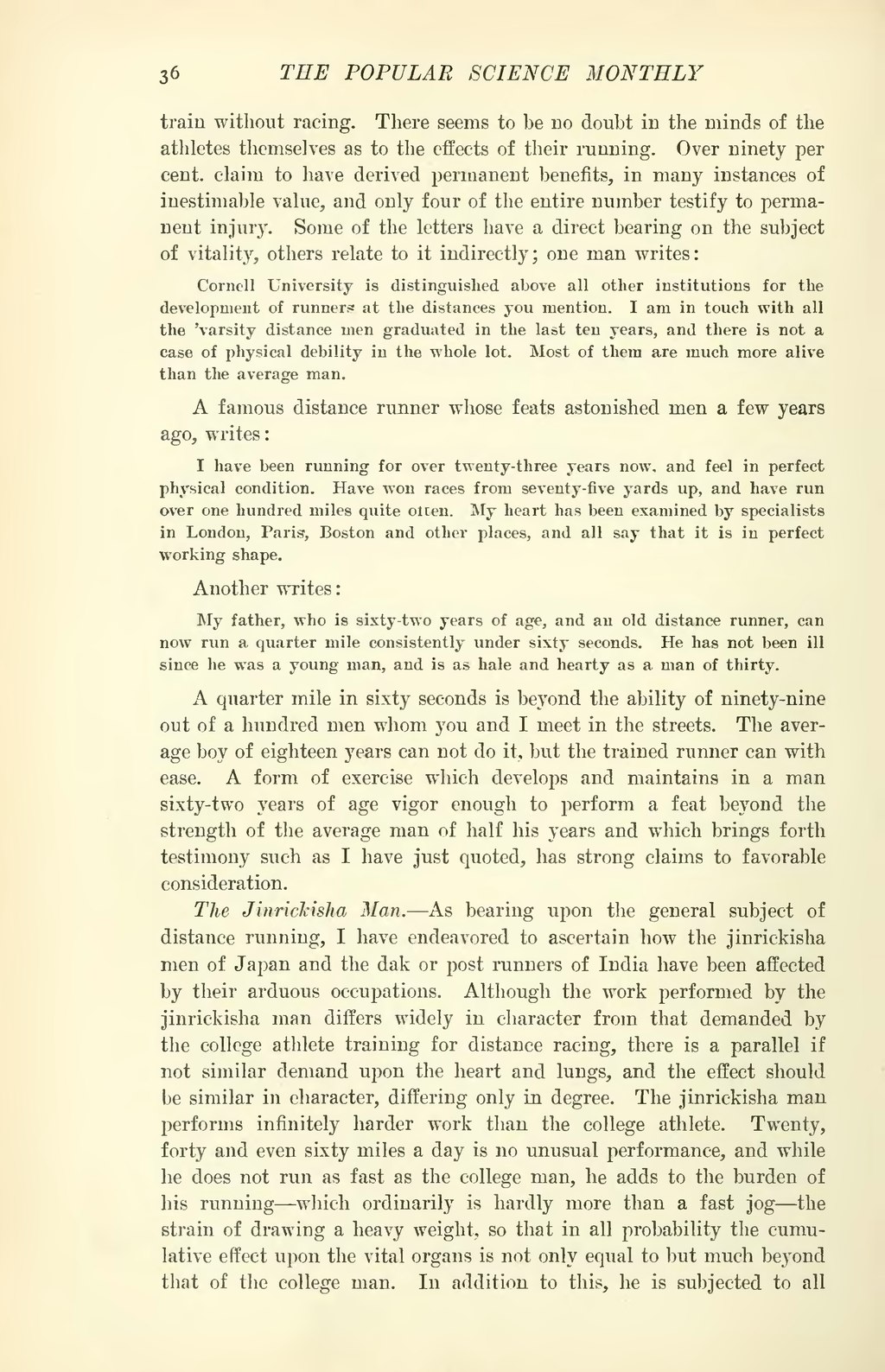train without racing. There seems to be no doubt in the minds of the athletes themselves as to the effects of their running. Over ninety per cent, claim to have derived permanent benefits, in many instances of inestimable value, and only four of the entire number testify to permanent injury. Some of the letters have a direct bearing on the subject of vitality, others relate to it indirectly; one man writes:
Cornell University is distinguished above all other institutions for the development of runners at the distances you mention. I am in touch with all the 'varsity distance men graduated in the last ten years, and there is not a case of physical debility in the whole lot. Most of them are much more alive than the average man.
A famous distance runner whose feats astonished men a few years ago, writes:
I have been running for over twenty-three years now, and feel in perfect physical condition. Have won races from seventy-five yards up, and have run over one hundred miles quite often. My heart has been examined by specialists in London, Paris, Boston and other places, and all say that it is in perfect working shape.
Another writes:
My father, who is sixty-two years of age, and an old distance runner, can now run a quarter mile consistently under sixty seconds. He has not been ill since he was a young man, and is as hale and hearty as a man of thirty.
A quarter mile in sixty seconds is beyond the ability of ninety-nine out of a hundred men whom you and I meet in the streets. The average boy of eighteen years can not do it, but the trained runner can with ease. A form of exercise which develops and maintains in a man sixty-two years of age vigor enough to perform a feat beyond the strength of the average man of half his years and which brings forth testimony such as I have just quoted, has strong claims to favorable consideration.
The Jinrickisha Man.—As bearing upon the general subject of distance running, I have endeavored to ascertain how the jinrickisha men of Japan and the dak or post runners of India have been affected by their arduous occupations. Although the work performed by the jinrickisha man differs widely in character from that demanded by the college athlete training for distance racing, there is a parallel if not similar demand upon the heart and lungs, and the effect should be similar in character, differing only in degree. The jinrickisha man performs infinitely harder work than the college athlete. Twenty, forty and even sixty miles a day is no unusual performance, and while he does not run as fast as the college man, he adds to the burden of his running—which ordinarily is hardly more than a fast jog—the strain of drawing a heavy weight, so that in all probability the cumulative effect upon the vital organs is not only equal to but much beyond that of the college man. In addition to this, he is subjected to all
